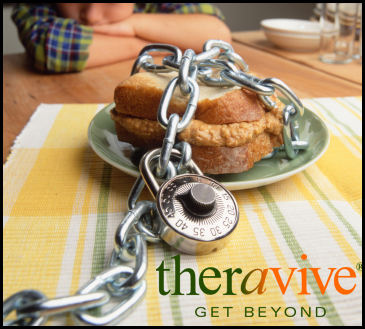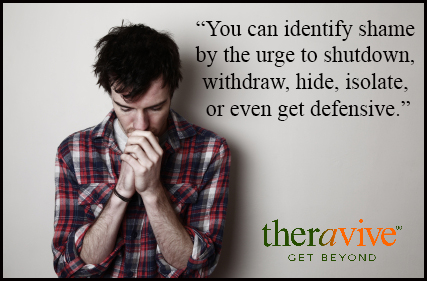Do you feel hijacked by urges to eat when you’re not hungry, mindless eating that leads to overeating, or cravings that you just don’t understand? It can be so frustrating and perhaps you feel like you have no idea why it’s happening. First of all, don’t beat yourself up, this is a complex issue! There can be many reasons behind why we eat emotionally or compulsively. More than one may apply to you or they can all be related, with one trigger setting off the next one and so forth. So what are some of the triggers behind your emotional overeating? Read on, and see if you can identify with any of these scenarios.
Physical or Psychological Deprivation
One of the biggest triggers for emotional overeating is deprivation. When we feel deprived, we crave. We want, or maybe demand, our needs to be fulfilled. With physical deprivation this is a powerful drive wired into our brain’s circuitry. Physical deprivation triggers include hunger, thirst, fatigue, for example. When our bodies get too hungry, our brain goes into primal hunger, which will increase cravings for foods that can offer quick energy. When primal hunger is activated, we’re also more likely to overeat at the next meal, because our body wants to make sure that there is plenty. Eating consistent meals throughout the day and making sure to eat breakfast in the morning can prevent this system from becoming activated.
Deprivation can be a deep chasm in our brains psychologically. On the surface, it can simply involve depriving yourself of certain foods. However, this can also trigger feelings of scarcity, or not having enough, which can trigger overeating. This also works for future plans of deprivation. When McDonald’s added healthier options to the menu, sales of Big Mac’s skyrocketed. When one part of the brain imagines engaging in the long-term goal (choosing a healthier option), it frees up the impulse part of the brain to get priority now. This leads to “indulge today, change tomorrow” behavior.
If you say to yourself, I will not be tempted by the desserts, you’re more likely to think about and subsequently, crave and overeat desserts if given the opportunity. When asked to suppress thoughts of chocolate, women ate almost twice as many chocolates as those who expressed thoughts of chocolate. In particular, dieters who suppressed thoughts about food have the least control around food. They experience more intense food cravings and are more likely to binge eat than those who do not try to suppress or control thoughts around food.
As you can see the idea of deprivation can be a trigger for emotional eating. Just the idea of being deprived something can go even deeper to feeling our needs aren’t going to be met, or trigger past emotional memories of unmet needs. Often this is happening beyond our awareness, but can be a powerful trigger to seek abundance.
What you can do: watch out for hidden threats of deprivation. This can mean restricting foods, future plans, or poor self-care. Connect with your emotional needs and reassure yourself that there is plenty for you. If there isn’t enough of what you are really feeling deprived of such as connection with others or a fulfilling career, seek support. A therapist can help you get back in balance and find new ways of getting your needs met.
 Shame as a Trigger for Emotional Eating
Shame as a Trigger for Emotional Eating
When the urge to eat comes on quickly and suddenly and seemingly from out of nowhere, it’s a good idea to check and see if shame is lurking. Shame is a difficult emotion to pinpoint because by nature, it likes to “hide”. Often the emotion we notice is anger or anxiety, when shame is really the primary emotion. You can identify shame by the urge to shutdown, withdraw, hide, isolate, or even get defensive.
How does shame trigger emotional eating? Actually, shame really is what drives compulsive eating. Shame is about feeling damaged, broken, unlovable, not good enough, and/or rejected. Shame can be triggered instantly when trying on clothes in a dressing room, at a social engagement, or in conversation with someone. Boom! There it is, and just as quickly, an urge to find food shows up. Shame is an emotion that we naturally want to avoid or move away from, but avoiding it is what fuels overeating. It can be a drive to comfort, soothe, or avoid, which all points to using food as a strategy.
The first step is to recognize when shame is present and allow yourself to have contact with that emotion. Next, you will want to build awareness of ways in which you may be evaluating or judging yourself and begin to create some distance from those thoughts by trying on a different perspective. Could they have meant something else? What would it be like to have loving thoughts towards your body? How is your judgment fueling negative emotions and thus, seeking comfort?
Your next step is to begin practicing skills such as self-compassion. This can be tough because the judgment or evaluative thoughts can be very deeply ingrained. A therapist can help you heal the inner critic and find new ways of relating to yourself. Group therapy for emotional eating is also a very powerful tool in overcoming shame. You learn from others who have similar beliefs and struggles as you while also getting different perspectives, support, and connection.
Get Help for Emotional Eating
If you find yourself struggling with emotional eating or feeling frustrated and powerless to food cravings, you’re not alone. Emotional eating is not easy to overcome on your own and there is so much conflicting information and advice available. A therapist can help you sort out what will work for you, understand the psychological and emotional components, and evaluate other factors that may be contributing to your cravings. Group therapy can be a powerful way to work through emotional eating as the group offers wisdom, connection and you can learn from others with similar experiences. Rachel offers individual counseling, group therapy for binge eating in Houston, TX and online services throughout TX. Call or email to find out more.
About the Author
 Eddins Counseling Group, LPC
Eddins Counseling Group, LPCSometimes it can seem like everyone but you has it all figured out. The reality is that it just seems this way. Everyone faces struggles in their lives. When you feel stuck, dissatisfied, and overwhelmed or just don’t know what to do to feel better an outside perspective can help you get back on track. We are a team of Houston therapists, relationship counselors, and career counselors. Online therapy and career counseling via phone or video conferencing is also available.
Office Location:
5225 Katy Freeway, Suite 103
Houston, Texas
77007
United States
Phone: 8325592622
Contact Eddins Counseling Group
Eddins Counseling Group has a clinical practice in Houston, TX
Professional Website:
www.eddinscounseling.com